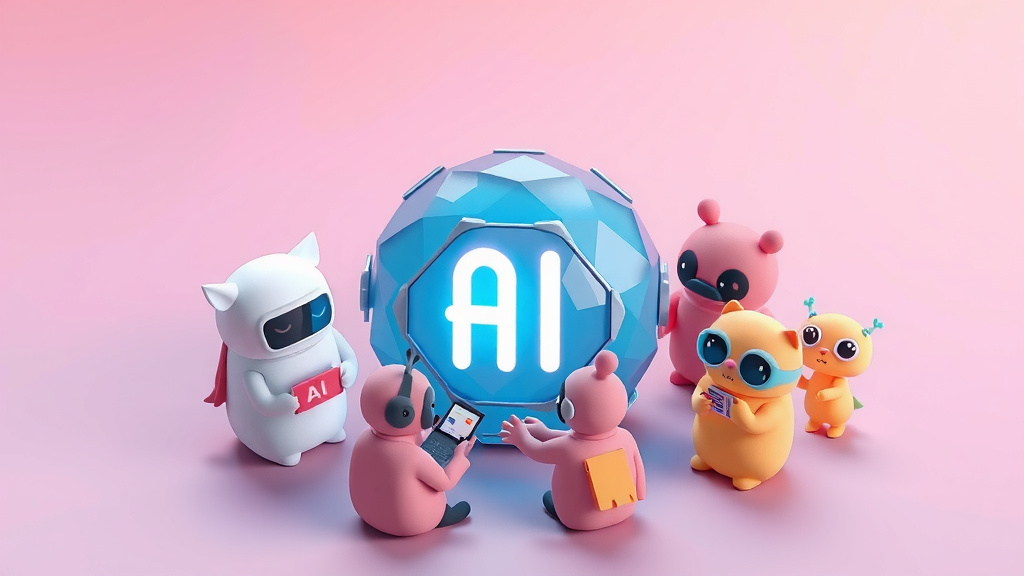Is AI Making Us Dumber?
A recent opinion piece by Namanyay Goel, an independent developer, has sparked a debate about the impact of AI on our cognitive abilities. Goel argues that relying too heavily on AI tools like Copilot, Claude, or GPT for simple coding tasks may be doing more harm than good. He claims that junior programmers who use these tools are missing out on the foundational knowledge that comes from struggling through problems.
Studies have shown that knowledge workers who use AI tools with high confidence are associated with less critical thinking, while those who use them less frequently are associated with more critical thinking. Another study found a negative correlation between frequent AI use and critical thinking abilities.
To avoid falling into this trap, Goel recommends treating AI as a starting point, not a magic answer box. He suggests verifying AI results, working out how they're solving problems, and considering whether there's a better way. He also recommends getting involved in professional conversations, coding from scratch, and looking deeper into understanding the process.
Microsoft Magma Brings Agentic AI to Robotic Systems
Microsoft Research has introduced Magma, an integrated AI base model that combines visual and language processing to control software interfaces and robotic systems. This is a major step forward for a versatile multimodal AI that can operate interactively in both the physical and digital worlds.
Magma is the first AI model that not only processes multimodal data but can also act on it directly. Unlike many previous multimodal AI systems, which require separate models for perception and control, Magma integrates these capabilities into a single base model.
Chinese Universities Offer DeepSeek Courses to Tap AI Boom
Chinese universities have introduced AI courses featuring DeepSeek, a domestic startup hailed as China's "Sputnik moment" in artificial intelligence. The move comes as Chinese authorities aim to boost scientific and technological innovation in schools and universities that can create new sources of growth for the world's second-largest economy.
Exabits Partners with Phala Network to Offer Robust AI Security
Exabits and Phala Network have partnered to offer trusted execution environment (TEE) enabled GPU clusters, ensuring personal data is processed within a secure enclave for heightened data protection in AI applications. This advancement enables developers to run DeepSeek R1 within a TEE, providing an isolated environment for processing data safely.
Alibaba Adds $123 Billion in Value in Stunning Comeback Rally
Alibaba has added $123 billion in market value in February, helped by a DeepSeek-driven rally in Chinese tech stocks, its tie-up with Apple to roll out AI features in China, and Beijing's rehabilitation of co-founder Jack Ma. Its shares rose 15% in Hong Kong on Friday alone after Alibaba reported higher sales and said it will boost spending on AI over the next three years.
Artificial Intelligence, Education and Cyber Security
A seminar on "AI in Education and Cyber Security" was recently organised by the Bharat Chamber of Commerce in collaboration with Bankim Sardar College at Bharat Chambers, Kolkata. The seminar highlighted the potential of AI in education beyond traditional learning and online proctoring, and emphasized the importance of cybersecurity in educational institutions.
Key Takeaways
- Relying too heavily on AI tools may be doing more harm than good, as it can lead to a lack of foundational knowledge and critical thinking skills.
- Microsoft's Magma is a major step forward in agentic AI, combining visual and language processing to control software interfaces and robotic systems.
- Chinese universities are introducing AI courses featuring DeepSeek, a domestic startup hailed as China's "Sputnik moment" in artificial intelligence.
- Exabits and Phala Network have partnered to offer robust AI security with TEE-enabled infrastructure.
- Alibaba has added $123 billion in market value in February, driven by a DeepSeek-driven rally in Chinese tech stocks and its tie-up with Apple to roll out AI features in China.
- AI has the potential to enhance education and cybersecurity, but it also poses significant challenges and risks that must be addressed.
- Cybersecurity is a critical concern in educational institutions, and regular audits and awareness programs are essential to prevent cyberattacks and data breaches.
- Public awareness, updating security patches, blocking spam callers, and avoiding unverified apps are key preventive measures against digital fraud.
- India's primary legislation to combat cybercrimes is the Information Technology Act, 2000 (IT Act), which provides a comprehensive legal framework for addressing offenses committed in the digital realm.
Sources
- Is AI making us dumber?
- Microsoft Magma brings agentic AI to robotic systems
- 2 Stock-Split AI Stocks to Buy Before They Soar in 2025, According to Certain Wall Street Analysts (Hint: Not Nvidia or Broadcom)
- Investigating LLM Jailbreaking of Popular Generative AI Web Products
- Chinese Universities Offer DeepSeek Courses To Tap AI Boom
- Chinese universities start teaching DeepSeek AI courses
- Exabits partners with Phala Network to offer robust AI security with TEE-enabled infrastructure
- Microsoft unveils Magma: A new AI model for controlling software and robots
- Alibaba Adds $123 Billion in Value in Stunning Comeback Rally
- Artificial intelligence, education and cyber security
